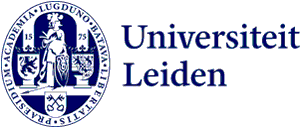
Professor Ewine van Dishoeck named Citation Laureate
Emeritus Professor of Molecular Astrophysics Ewine van Dishoeck has been named a Citation Laureate by Clarivate, a research analytics provider. Clarivate considers her an influential researcher of the calibre to win a Nobel Prize.
Van Dishoeck has been honoured with the award for her ‘pioneering contributions to astrochemistry revealing interstellar molecular clouds and their role in star and planet formation’, according to Clarivate. ‘Her work has deepened our understanding of the chemical processes that govern interstellar space, with multiple publications cited over a thousand times in the Web of Science Core Collection – a distinction achieved by only a small fraction of global research output.’
Nobel class
The Citation Laureates is an annual list of ‘Nobel class’ researchers, Clarivate writes. Through citation analysis, qualitative assessment and given previous awards, Clarivate identifies researchers whose discoveries have reshaped their fields. Since the programme’s inception, 83 Citation Laureates have gone on to receive Nobel Prizes.
‘Proud of my team’
‘I’m proud of my team – our work is read all around the world’, said Van Dishoeck. ‘The stunning new data from the James Webb Space Telescope will enable us to build on that success. Clearly communicating our results to a broad scientific audience is an integral part of what we do.’
New planets and stars
Van Dishoeck helped and continues to help develop the most powerful telescopes in the world. She conducts research into ice-cold clouds of gas found between the stars close to our own solar system. The unusual conditions in space mean molecules are present that are rarely found on Earth. These gas clouds are also the place where new planets and stars are born. Van Dishoeck looks at the formation process of these celestial bodies and studies which molecules in these clouds will end up on one of these new planets.
Van Dishoeck’s groundbreaking work has already been recognised with prizes and awards, including the Kavli Prize in Astrophysics in 2018, the highest honour in this field. She also received the Spinoza Prize in 2000, the highest academic award in the Netherlands, and has secured numerous research grants.
Based on the ambitions of Academia in Motion, Leiden University is committed to adopting a broader approach to recognising research quality and impact. This involves using a wide range of indicators, of which citation statistics may be one aspect. In line with initiatives such as the Barcelona Declaration, we also aim to use publicly available research information.
